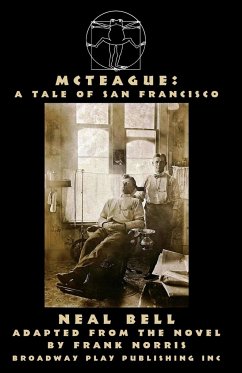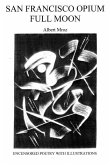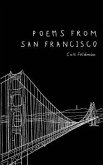Neal Bell's adaptation of Frank Norris's novel tells the story of a couple's courtship and marriage, and their subsequent descent into poverty, violence, and finally murder as the result of jealousy and greed. "Frank Norris's novel McTeague is a panorama of the U S at the turn of the century: cowboys, gold mines, the immigrant experience, the advent of electricity and the movies. At the core is a gruesome cautionary tale, aptly retitled Greed by Erich Von Stroheim when he made a nine-hour film of it in 1923 … In adapting it anew … Neal Bell's script [tells] a story of downward mobility, about a miner turned dentist (sans diploma) who winds up defrocked and doomed in an abandoned mine." -William A Henry III, Time "Bell weaves a thick, dark tapestry of themes from MCTEAGUE's epic of incidents. Socially, the focus is on the helplessness of a rough simpleton in a rapidly urbanizing and professionalizing America - and on the determination of immigrants and bootstrap-tuggers to cling to the middle class rather than fall into the Victorian abyss of want. Psychologically, it's on the metamorphosis of McTeague's innocent ignorance into murderous rage - and Trina's sensible shift into masochistic self-denial. Morally, it's on the life-choking consequences of treating money as an end in itself rather than a means toward fulfilling human needs. Each of these levels resonates through the adaptation's writing." -Scott Rosenberg, San Francisco Examiner



![San Francisco Poems [2nd Edition] San Francisco Poems [2nd Edition]](https://bilder.buecher.de/produkte/48/48877/48877673n.jpg)




